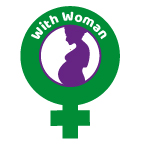
Here’s why ‘adding more ink’ to the words ‘women’ and ‘mothers’ still works against women – but, you know, thanks for trying…
‘At least they’ve kept in the word ‘woman’ there,’ said my friend.
I’d sent her a recent NCT tweet which expressed how the parent support charity are all for the evidence-based approach to supporting ‘women and birthing people to make informed decisions.’
On the face of it, the ‘additive language’ of ‘and birthing people’ might look fine. There are, after all, real concerns with so-called ‘gender neutral language’ with its sexless cervix havers, menstruators, uterus owners…and yes, birthing parents and pregnant people.
We worry that the sex-specific words and concepts of ‘women’ and ‘mother’ become verboten, erased, disappeared. There are numerous examples, nationally and internationally, in policy documents,
in health guidance.
There are so many reasons why we need to acknowledge biological sex in health messaging, and there are plenty of people who see exactly why….but who then worry, a lot, that using sexed words is cruelly not ‘inclusive’.
Instead, goes the argument, we need to be kind.
Some women don’t want to be thought of as ‘women’ or indeed ‘mothers’ if they’re pregnant or have given birth. They feel excluded if they see these sexed words, because they identify as men or non-binary (neither man or woman). It all compounds their difficulties navigating a world, and its health services, which assumes they’re women.
The kind folk have the answer! Just ‘use more ink’ and include the excluded as ‘people’ after the word ‘woman’ with a handy wee ‘and’ in additive language. Problem solved!
Except it isn’t.
In fact, it can make the problem worse.
Gender ideology privileges gender identity – what someone says they are – over biological sex.
The phrases birthing people, people who menstruate, pregnant individuals, and so on, are all attempts to excise the sex-specific words ‘mother’ and ‘woman’….but if you add them to ‘women’, then everyone’s happy, including those who say their gender identity is trans or non-binary, right? Well… no.
In a free society, of course, everyone should be able to present and express themselves as they wish. And those who say they aren’t women even when pregnant or birthing should have as much individualised, respectful maternity care and support as they need.
But while there are a few deluded souls seriously claiming that being transgender or non-binary somehow wipes out biological sex, the rest of us know that your sex is not the same as your gender identity.
In fact, plenty of us don’t have a gender identity – we just have a sex, and reject the notion that we have to conform to, or approve of, a whole range of sexist social and cultural stereotypes in order to ‘identify’ as female.
Yet in matters to do with health, birth, infant feeding, the words ‘woman’ and ‘mother’ are not ‘gendered’. They are sexed terms. They say nothing about whether someone has a gender identity or not.
However, in communications beyond individualised care, sticking the term ‘and pregnant people’ (and all the rest of the ‘peoples’) after the word ‘women’ imposes a gendered meaning on ‘women’ – as if there are two classes of ‘genders’ giving birth, one comprised of those who ‘identify’ as women, and the other made up of ‘people’. Forcing sexed words to be read as gendered words is once again denying the material reality of biological sex, making it harder to analyse and challenge the political reality of sexism in health and maternity care.
The one thing we know – for certain – about everyone who gives birth is that they’re a woman, after all, and that they share that biological and political reality. . Just as writer Milli Hill says in her blog reporting the poisonous hostility shown towards her when she questioned this language, I too feel when we say ‘ women and birthing people’, we are ‘somehow pledging allegiance to a wider set of ideas’.
On a practical level, any message becomes unclear. Women whose first language is not English may wonder at the meaning. Women may resent being put outside the category of ‘people’….as if women themselves are not ‘people’. Women who know they’re female, with no claims to be anything else, may not want to be thought of as having a ‘gender identity’ – has anyone asked?
In fact, I don’t think any organisation – and there are many, now, who use additive language – has done an impact assessment across their client group to check for acceptability and comprehension (memo: people already signed up to gender ideology are not the only stakeholders here).
Just as significantly, when words are tight (on social media, on posters) or copy writers are looking for a style that’s non-clunky, guess what words are missed out? Clue: it’s not the ones after ‘and’. Yes, I’m looking at you, The Practising Midwife Journal.
And we’re back to erasure again.
Looking for inclusivity? The words you’re looking for are ‘women’ and ‘mother’.
Heather Welford
July 7 2021


Leave a comment